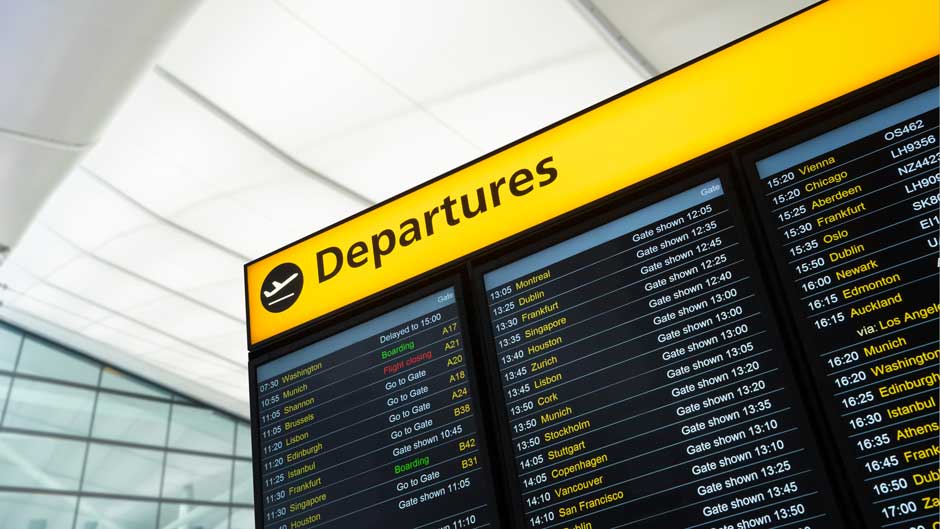Few would have thought, when it became law in 2004, that the Denied Boarding Regulation EC261, which started life as a deterrent to stop airlines operating within and out of the EU from overbooking or cancelling flights for commercial reasons, would be progressively extended into the financial and administrative burden it is today.
Why has this happened, and how can airlines manage and minimise the cost of EC261?
The main reasons why it has become such a burden are two-fold. First, the European Court has held that EC261 applies not only to cancelled flights but also delayed flights, so EC261 requires airlines to compensate passengers delayed for more than three hours unless the delay is caused by an “extraordinary circumstance”. Second, the same Court has slowly eroded the types of circumstances which are regarded as “extraordinary”.
The cost of EC261 is substantial. According to recent UK Civil Aviation Authority (CAA) statistics, there are around two million commercial air flights into or out of the UK each year, carrying around 230 million passengers of whom approximately 140 million fly to continental Europe. Even assuming that 0.5 per cent of flights are delayed by three hours or more, and assuming that around half of those delays are not caused by extraordinary circumstances, the liability in respect of flights from the UK alone is potentially well in excess of €200m per year. It is noteworthy that in its 2014 accounts a UK airline made a provision against EC261 liabilities of over £40 million.
To some extent the effect of the liability on the bottom line has been cushioned in recent years by a combination of the higher revenues earned from relatively high demand, as well as the costs savings flowing from unexpectedly low oil prices. In harder economic times, or if oil prices were to return to their pre-2015 average of around US$100 per barrel, the effect of EC261 would be felt even more sharply.
Part of the reason why EC261 is onerous is that airlines have the evidential burden to show that the delay was caused by “extraordinary circumstances” and that the delay could not have been avoided even if all reasonable measures had been taken. In practice this means spending time preparing careful court pleadings and witness evidence. This, added to the fact that a losing claimant is often not responsible for the airline’s legal and management costs, means that some airlines think twice about whether they should defend cases even if they are confident they have good grounds to do so. Claimants, on the other hand, have to do little more than submit basic flight information to the Court and then see if the Court finds in their favour, with little or no risk.
The compensation payable, ranging from €250 to €600 per passenger, depending on the length of the flight, is high compared both to the ticket price and to compensation payable for delays in other forms of transport.
The evidential burden, the heightened cost of procedural steps, the asymmetrical costs consequences and the potential rewards mean that it is hardly surprising that claims management companies (CMCs) and ‘no-win-no-fee’ law firms have made EC261 into a very profitable business.
Most people would agree that EC261 is far from clearly drafted. That EC261 which has been referred to the European Court more than any other EU regulation appears to confirm this. But the long-expected revision of EC261 has been delayed and there is now no prospect that things are going to change in the near future.
How are airlines coping with this and how will they do so going forward? Different airlines are taking different approaches:
- Some airlines are paying up, even on claims for which they arguably have a defence. This minimises the administrative and legal cost and may be thought to boost customer loyalty, but it can also encourage unmeritorious claims. Such airlines tend to be a prime target for CMCs and claimant lawyers, who can earn their (not-insubstantial) fee by doing no more than writing a single letter. The volumes of claims that the CMCs and claimant lawyers are handling, and the ease of exchange of information on social media, mean that the “soft touches” are quickly known. If it becomes known that a particular airline pays out on claims, even ones which have arguable defences, then that airline tends to be inundated with further claims including ones which fall outside even the European Court’s broad view of the scope of the Regulation.
- Some airlines trust to good luck and their policies are driven by the volumes of claims they receive. Such volumes can vary enormously because some claimant law firms and CMCs are notorious at storing up large numbers of claims to flood an airline in the hope of forcing the airline into a settlement which represents (for the CMC) a quick, simple and highly profitable result: this sudden rise in claim numbers can exacerbate the acute difficulties which the airlines is encountering dealing with an already high volume of claims.
- The remainder have decided to take a more proactive approach which involves putting in place well-defined policies and procedures and then defending unmeritorious claims rigorously.
The challenge of the last approach is to make it cost-effective given the size of each claim and the fact that the legal and evidential burden being on the airlines. It is achievable but requires law firms to develop highly efficient and innovative working practices which is frankly a challenge beyond many large law practices. A good process will also promote customer loyalty by paying undisputed claims quickly and without incurring unnecessary cost. The efficient defence of claims deters the CMCs and claimant law firms, and helps substantially to reduce the total cost of compliance with EC261, in terms of management, administration, legal fees and compensation, and, ultimately, results in an improved bottom line.
This article was published during May 2016 in Expert Guides.
EC261 and Brexit
From a UK perspective, the obligations associated with EC261 are currently unaffected by the UK’s decision to leave the European Union, the Brexit vote. After the UK's exit from the European Union (EU) is enacted, EC261 will continue to apply at least to all flights into the UK from the EU. In regard to flights from the UK to the EU, EU airlines will be subject to EC261 while the position of UK airlines will not be known until negotiations are undertaken.




